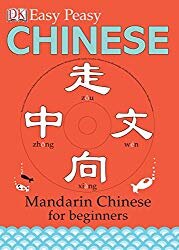If you are reading this then chances are you are interested in, considering moving to or generally just curious about the great enigma that is China.
I am sure you are bursting with questions, so let me start off by answering one of the questions I am most frequently asked:
‘What is the cost of living in China?’
This post is based on a city called Nanjing, which whilst not as big as Shanghai or Beijing, it qualifies as a second-tier city in China. The size of it is still huge (London size) but the cost of living is slightly cheaper in a second-tier city and so it’s likely that you might pick this as a good place to live in China. The cost of living is generally a bit cheaper but the pay is still quite high so it’s a great place to start your China journey.
Apartment
If you are moving to any new city, first on your list is going to be finding some accommodation. So let’s start off by talking about apartments.
I wanted a two-bedroom apartment so I could accommodate guests (and all the souvenirs I pick up from Chinese markets).
Here is the breakdown:
Size: 104sq/m
Bedrooms: 2
Modern, Western-style bathroom
Laundry room
Office
Open-plan living/dining area
Kitchen
Fully furnished
Apartment = ¥3,800/£424/$536 (not including utilities)
Tip: Many people that I know split the cost of an apartment with a coworker or other expats living in their city, which is a great way of saving some money! I lived here with my boyfriend so this price was between two people.
Utilities
My utilities include water, gas, electricity, phone credit, and the internet.
The combined cost is ¥640/£71/$90 pcm.
These prices are pretty comparable to what I used to pay in the UK, although electricity, water, and gas are definitely a little cheaper.
Other things in China end up being much cheaper which is where you save your money.
Transport
China’s public transport is world-class and any large city will have all the usual transport options.
Metro
Like most cities in China, the metro in Nanjing is convenient and covers almost the entirety of the city.
It is incredibly clean and there is security present at every stop which gives it a safe feel but can be a hindrance if you are in a rush as you must put your bag through a scanner.
The fares are very reasonably priced.
Short trip (less than 10 mins) = ¥2/£0.22/$0.28
Long trip (1-2 hours) = Y10/£1.10/$1.4
Bus
Most of the buses have a set fare, regardless of distance. Unlike my home city in the UK however, the cost is minimal. You can get on and off wherever you want and just drop a couple of coins in a box at the front, which is great if you can’t speak Chinese as you don’t have to tell the driver where you want to go.
Bus = ¥2/£0.22/$0.28
Taxi
If you end up staying out and missing the last metro, then don’t fear! Taxis are safe, cheap and generally pretty reliable.
Tip: Download Didi, the Chinese version of Uber which is available in an English language version. You can use it to request a regular taxi and pay using the meter which is handy if you have yet not got a Chinese bank card set up! I would highly recommend this app and I use it pretty much all the time as it’s so easy. If you are moving here then definitely download it.
Short trip (less than 10 mins) = ¥11/£1.2/$1.6
Long trip (more than 30 mins) = ¥60/£6.7/$8.5
Bike
There are bike lanes everywhere in Chinese cities and for many people, this mode of transport is their favoured option for short journeys.
That being said, private bike ownership is rare, so how do people get around you may ask?
There are actually public bikes available on near enough every street corner. All you need to do is download an app, pay a deposit and then scan a bike each time you wish to ride.
In each city there are different bike-sharing apps, so check which bikes you see most often and download that app. For me my favourite is MoBike.
Deposit = ¥300/£33/$42
Journey = ¥2/£0.22/$0.28
Food
I imagine that this is what many of you have been waiting to hear about.
Food is an important part of life in China, and you will rarely walk a block or more without coming across a great selection of cheap food options.
If you plan on living in a big city then you will have near limitless options when it comes to eating out and won’t find it hard to get ingredients to cook with at home.
That being said, it can often be cheaper to grab a quick bite somewhere than cook yourself, although you may find yourself wanting to replicate those home-cooked recipes from your country.
Street food
After I finish work, you can usually find me gorging on food at the street food market next to my school.
I usually get egg-fried rice, a crispy chicken wrap or a smoking plate of BBQ meat and vegetables.
Rice = ¥8/£0.90/$1.2
Chicken wrap = ¥9/£1/$1.3
BBQ = ¥15//£1.6/$2.1
Local restaurants
There is such a variety of places to eat but your average local restaurant won’t end up breaking your bank balance.
Dumplings = ¥20/£2.25/$2.8
Big bowl of soup with chosen ingredients = ¥25/£2.8/$3.5
Epic stir fry for 2 people with beef, veg and rice = ¥70/£7.80/$9.87
Western Restaurants
I know that most people come to China with the intention of throwing themselves into trying every local delicacy under the sun but don’t be surprised if you find yourself craving some Western staples once in a while.
All big cities will have a few Western chains you will recognise, as well as some higher quality independent options.
BurgerKing meal = ¥28/£3.1/$3.95
Starbucks coffee = ¥38/£4.25/$5.4
Burger in a nice bar with 1 alcoholic drink = ¥110/£12/$15.5
Pizza for 2 with sides and beers = ¥247/£27.5/$34.85
Tepanyaki all you can eat and drink = ¥200/£22/$28
Groceries
There are a few different options when it comes to food shopping in China. You can go to the local market, navigate your way around a Chinese supermarket such as Suguo or indulge yourself with a trip to a foreign import supermarket.
If you buy local and Chinese then it will be cheap, but if you absolutely must have that sauce from home, then you might find yourself making a bigger dent in your bank balance.
Shopping bag of mixed Vegetables = ¥10/£1.12/$1.4
Rice 2.5Kg = ¥8/£0.90/$1.2
Chicken = ¥9/£1/$1.3
Beer = ¥4/£0.45/$0.57
Coke = ¥2.8/£0.31/$0.40
Tea 50 bags = ¥12.5/£1.4/$1.77
Pasta = ¥13/£1.45/$1.83
Butter = ¥38.5/£4.3/$5.4
Cheese = ¥30/£3.35/$4.23
Kellogg’s Cornflakes = ¥38.5/£4.3/$5.4
(*Please note all prices were true at time of posting. Please check a currency converter to see the latest exchange rate.)
Compared to many other places in the world the cost of living in China is fairly low.
If you work as an English teacher in China, then you will be among the top bracket of earners in your city and it is certainly possible to live a comfortable life and still save a tonne of money!
If you are interested in becoming an English teacher then get in touch and I can send you my recommendations!
Moving to China could well be the best decision I ever made.
Don't forget to check out my video here.......
IF YOU LIKE IT, PIN IT!
Moving to China? Download a VPN now. Use my favourite VPN provider…….















